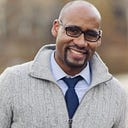Why I left a lucrative mid-level career in data science to start over in a software engineering bootcamp
I was pretty set. I had a base salary well over six-figures, amazing benefits, and sweet RSUs ready to cushion the retirement accounts and provide that specific electric vehicle many successful techies drive around in. It was the apex of a career derived by many years of long nights of study and calculated risks that positioned me in a managerial role in data science in one of Silicon Valley’s recently IPOed unicorns. As you’re asking yourself why in the heck I would walk away from a role so many salivate over, come along for a ride with me.
My journey was not a typical one. After graduating business school, my heart was set to enter a career in high finance or managerial consulting. The idea of jet-setting with other high-calibre, over-worked, over-presumptuous 20-somethings helping inform the strategic direction of large firms appealed to my unhealthy sense of self. I was convinced I was born for it. And only the 13 straight months of rejections could snap me out of it. Time for plan b.
I took a research role in one of New York City’s many media agencies. I wouldn’t be jet-setting, nor helping set strategic direction, but at least I was doing something interesting, and intellectually stimulating: helping my clients better understand their target segments through data. To note: I didn’t have a degree focused in statistics, computer science, or math. But in those early days (circa 2008) it didn’t matter much. I had taken enough courses in statistics, calculus and computer simulations to make me dangerous. And I was hungry to learn and get better. I looked for roles strictly focused in analytics. Why? I noticed a few trends emerging:
- The Great Recession was forcing everyone to justify every marketing dollar spent.
- The Internet’s addressability was forcing other media vehicles to begin exploring how they too could become addressable.
- With this new iPhone thing Steve just announced, and other “i” related stuff, the world would become even more digitized, and thus, a higher demand for people capable of wrangling and making sense of the data these systems produced.
A career in data seemed much more stable than that coveted career in banking anyway. I was all in. My career in data science began.
From job-to-job, I learned various tools and systems: Minitab, Access, SQL-Server, SPSS, SAS… Every subsequent job had another tool. I decided to learn something I could take with me. Enter R and Python. I got my first taste of coding and building small applications. More on this later.
After a few years in the field, and as the term “data science” became in vogue, many companies were willing to pay very smart and capable people a lot of money to do important, but, in my view, not very fulfilling and/or intellectually stimulating work. Data scientists out there with a few years experience will know what I mean. Reporting. Dashboards. Ad-hoc data pulls in the form of SQL writing. Simple logistic regression or time-series models. The vast majority of the work turned into getting data for other people, or providing a simple model to confirm the biases executives already had about the business. And while necessary, after about a decade, it started to become a bore. I had a decision to make. Double down on data science and learn the complex mathematics and code in the emerging and quickly evolving fields of deep learning where the real action is going, accept my boredom, or try something else. Then a whisper came again that reminded me of a past project.
In one of my roles, I took on a project the engineering team of the firm simply did not want or have the resources to tackle. It was complex financial reporting with a long set of business rules. After a few weeks that included a couple of consecutive days where we did not leave the office, I delivered some code that would take a process that took about 4 days, to 15 minutes.
The direct impact my sleepless nights had was measurable. There was a sense of satisfaction that I had never felt before. I. Built. Something. Something that, while meeting the definition of un-sexy, people actually used. I wanted to feel that satisfaction again. Frequently.
I came to this simple, yet life-changing realization: I’m tired of analyzing stuff. I want to build stuff.
I was in the position of hiring people, managing teams and complex projects. Switching careers, I face the reality that my salary will be cut by 50% when I graduate my immersive software engineering bootcamp- at least for the first few years. And yes, of course starting your career over at 40, while being the sole income provider for your wife and child is brown pants worthy. But to me, worse is ignoring the feasible pursuit of a flaming desire, in exchange for comfortable apathy that would guarantee mediocrity.
